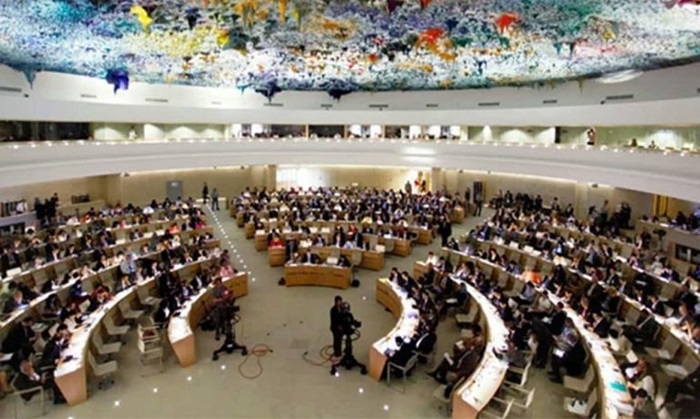

Javaid Rehman, the United Nations Special Rapporteur, delivered a comprehensive report detailing the alarming increase in human rights violations within the country. This comes shortly after a preliminary announcement by the United Nations Fact-Finding Mission on March 8th, which accused Tehran of committing crimes against humanity in its crackdown on the 2022 uprising.
Javaid Rehman’s report laid bare the egregious spectrum of abuses under the Iranian regime, from a stark 43% surge in executions in 2023 compared to the previous year, to widespread torture, mistreatment of prisoners, and systemic discrimination against ethnic and religious minorities, women, and girls. His findings were echoed by the Fact-Finding Mission’s earlier revelations, which characterized the government’s response to dissent as disproportionately violent and constitutive of crimes against humanity.
The sessions, held at the U.N.’s European headquarters in Geneva, served as a platform for international condemnation of Iran’s actions. However, Tehran’s representatives dismissed these accusations as baseless, attributing political motives to the reports. Despite this, Rehman emphasized the impartiality of his work and underscored the urgent need for the international community to establish accountability mechanisms for Iran’s long-standing and recent human rights atrocities.
#Iran News in Brief
At the 55th session of the Human Rights Council, @JavaidRehman's UN report exposes a concerning 43% spike in executions in Iran, urging global attention to the escalating #humanrights crisis. Calls for justice for 1980 and 1988 massacres.… pic.twitter.com/S2BnyM1Ysq— NCRI-FAC (@iran_policy) March 18, 2024
Further amplifying the calls for accountability was Sara Hossein, head of the Truth-Finding Committee, whose report not only corroborated Rehman’s findings but also detailed the regime’s brutal crackdown following the 2022 protests. The Committee’s work highlighted systemic arrests, torture, and targeted violence, particularly against women and human rights advocates, marking a significant step in the quest for justice and accountability within the country.
One of the most poignant moments of the session was the speech by Shabnam Madadzadeh, a political prisoner representing the International Women’s Rights Association. Despite attempts by Iranian representatives to interrupt, Madadzadeh’s testimony shed light on the regime’s intolerance for dissent and underscored the broader call for justice and accountability.
As the Human Rights Council moves towards issuing resolutions that could extend the mandates of both the Special Rapporteur and the Truth-Finding Committee, the international community stands at a critical juncture.
Sara Hossein, chairperson of @UN Independent International Fact-Finding Mission on Iran at #HRC55: highest number of deaths in a single day during the protests took place in Zahedan on #BloodyFrieday on 30 September 2022. @amnesty's analysis: https://t.co/QWoYhpwgk0
— Amnesty Iran (@AmnestyIran) March 18, 2024
The reports presented during the session not only underscore the severity of human rights violations in Iran but also highlight the regime’s blatant disregard for international scrutiny and the basic dignity of its people. In the face of such defiance, the continued efforts of the U.N. and the international community are vital in holding the Iranian regime accountable and providing a glimmer of hope for those who suffer under its rule.

MEK Iran (follow us on Twitter and Facebook), Maryam Rajavi’s on her site, Twitter & Facebook, NCRI (Twitter & Facebook), and People’s Mojahedin Organization of Iran – MEK IRAN – YouTu







